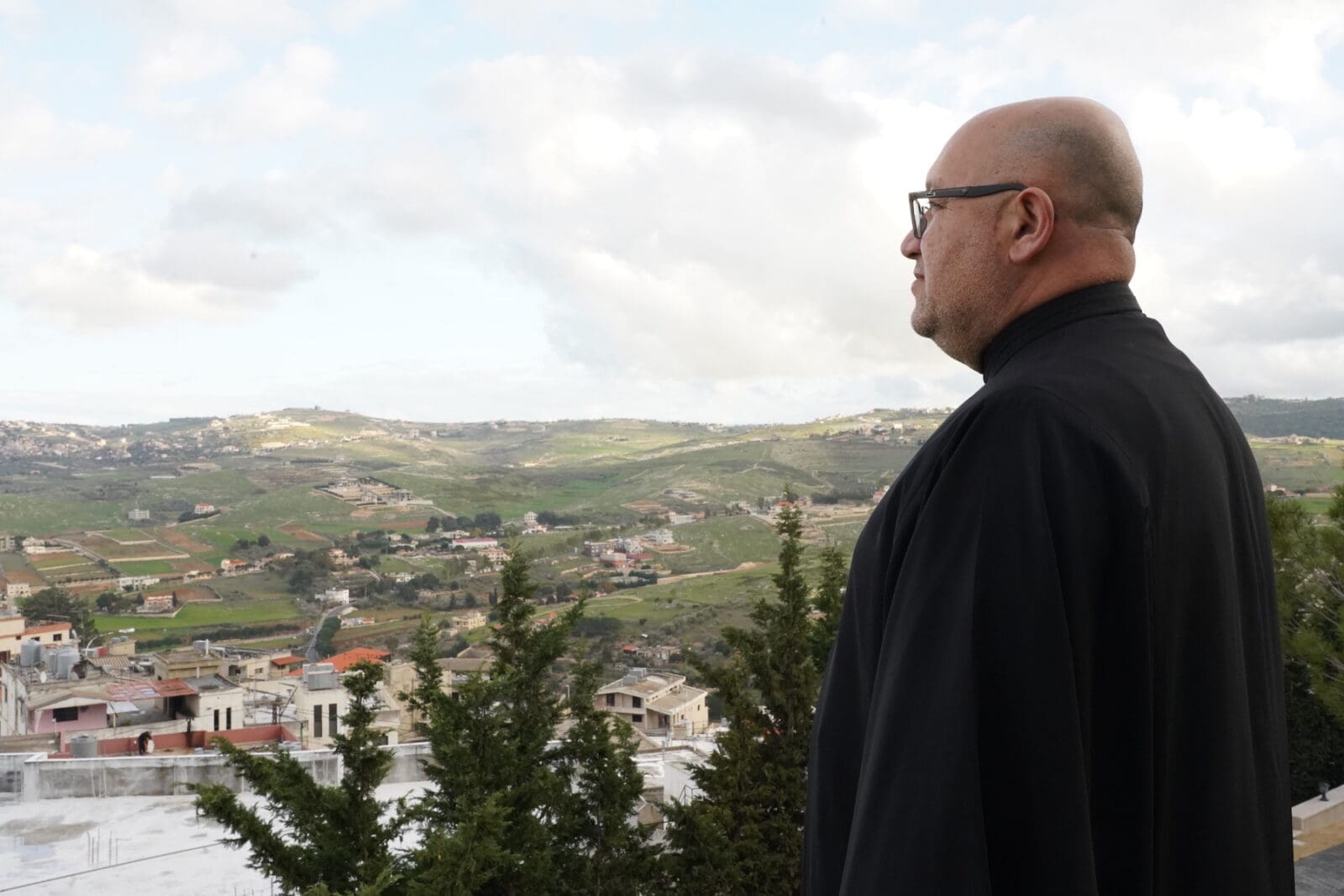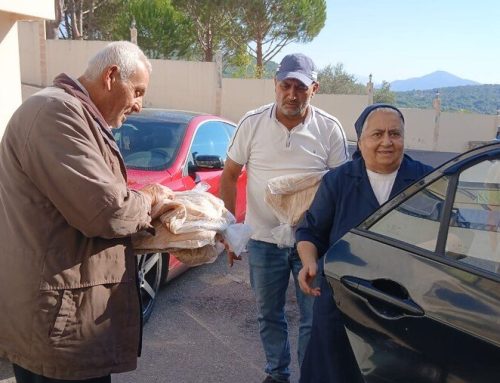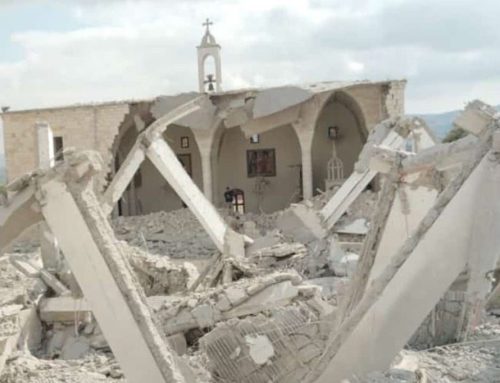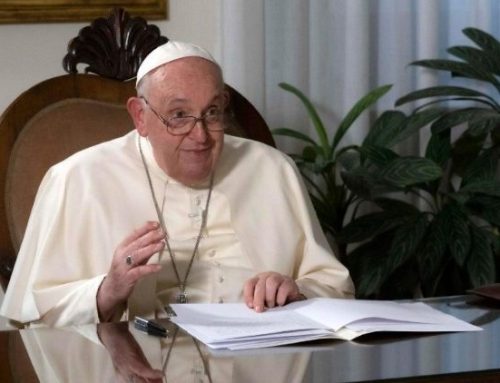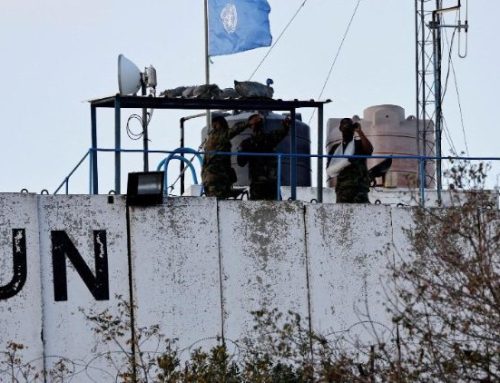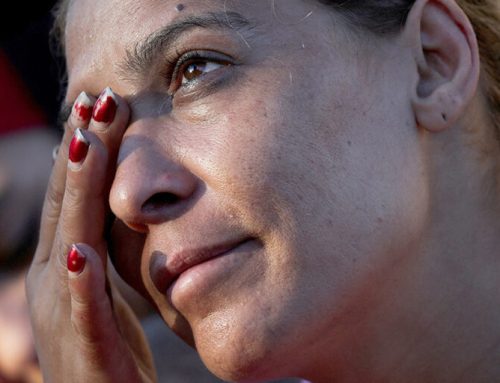ONE magazine published “No Generation Spared” in its June 2024 edition. The article covered the situation in southern Lebanon, highlighting communities affected by the conflict between Israel and Hezbollah. These largely Christian villages, including Yaroun, have been devastated by the escalation in recent weeks. A New York Times report published today shows that Yaroun and other border villages, like Maroun al-Ras, have been flattened by the Israeli military. Read an excerpt from “No Generation Spared“ below.
Jamil Salloum fled his village, Yaroun, located less than a mile from the Blue Line.
“The bombing started on 8 October. On the following day, we left with nothing,” he recalls.
Mr. Salloum and his sister first sought refuge with their niece in a nearby village. Then they all moved together to Tyre, 15 miles from the demarcation line. As of mid-April, 92,621 southern Lebanese were internally displaced, according to the International Organization for Migration; Tyre was hosting 28 percent of them.
Mr. Salloum talks little, admitting it is painful to be financially dependent on his niece and her husband, with whom he relocated to a flat, along with their children and his sister.
“I work in a tobacco plantation and in greenhouses. In Tyre I cannot work: the agricultural lands are up there,” he says, referring to Yaroun. “The Israelis dropped white phosphorus,” he alleges, “so when we return, we will need to heal the land, as we have to heal the people.”
Visibly moved, he scrolls on his phone to find photos of what is left of his house. Struck twice by the Israeli army, his house is now destroyed. The photos show shattered windows and smoldering ruins of his belongings.

“Life is hard. I speak on behalf of all the country, not just me, not just the south,” he says. “If we want to go back [to our villages], we will need support. Nobody helps us.”
Mr. Salloum has a point. Fragile, corrupt and bankrupt, the Lebanese state has been unable, for decades, to provide citizens with a safety net.
Since the economic crisis started in 2019, the population has been reliant on remittances from the diaspora to survive, as well as on aid from international humanitarian, political and religious organizations.
For many in Tyre, the last safety net has been the Melkite Greek Catholic archeparchy, where Father Khairallah coordinates social assistance.
…

In the village of Qana, the scars of wartime are being passed on to a new generation. Slouching back on a couch, 14-year-old Mirella Boutros looks up from her smartphone and shares a photo of a broken window of her home, a 20-minute drive from Tyre.
“We hear the fighter jets a lot, so I cannot focus much,” says Mirella about the situation at her school, located close to villages that are bombed regularly.
“When there is an attack, some students lose consciousness, others shout. In the bathrooms, if [the Israelis] strike one more time, the walls will collapse. The windows are already shattered,” she says.
As the day draws to a close, Ziad Boutros, her father, says: “Wait a bit later, and [the bombing] will start. It happens every day.”
“We are waiting for the situation to get better,” he says. “Neither the Muslims nor the Christians can do anything.”
Qana is home to 53 Christian families, but most people in the village are Shiites. Mr. Boutros says communities live together serenely.
“We talk about social issues, not politics. Politics and weapons are not our problem,” he says. “We are all children of the country.”
The police officer has just become a father for the fifth time. Before the crisis, the birth of his son Charbel would not have drained his finances: His monthly salary was $2,000. It is now $200, the price of the C-section his wife underwent.
Father Khairallah says diapers and infant formula are out of reach for many families.
“One container can cost up to $8,” he says.
The priest is preparing a list of 30 families whose babies will receive formula for a few months, thanks to a $4,000 grant from CNEWA.
“We may not have a lot of money, but we work to the best of our ability with wisdom.”

Metropolitan Archbishop Georges Iskandar of Tyre says the archeparchy has tried to respond to the distress of his flock since the onset of the war and to support their ongoing presence in their villages.
“The needs are immense, and we cannot address them,” he says.
“We are in contact with religious leaders of other groups, and we asked [Hezbollah, Hamas, Palestine Islamic Jihad and Amal] to avoid taking actions too close to the houses,” he says.
Almost six months into the war, the archbishop says one must have “the same faith the Canaanite woman” in the Gospel of Matthew had when she asked Jesus to cure her daughter in Tyre.
“God helped us, God is helping us and will help us to avoid [all-out] war.”
By Laure Delacloche | cnewa

